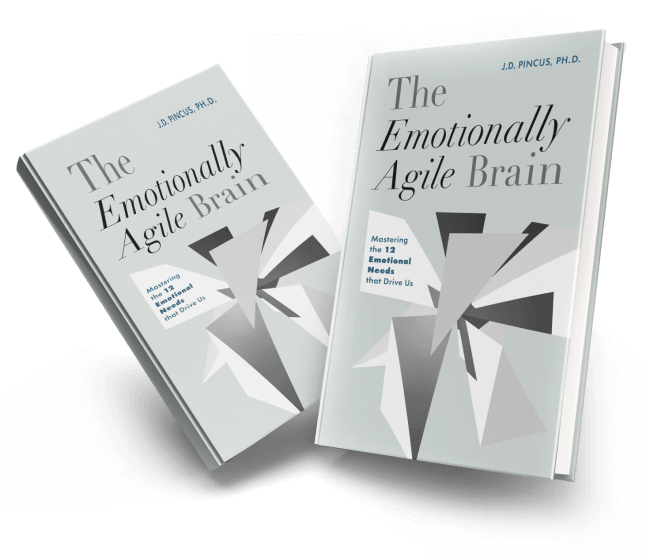As you step into the workforce, you’re not just bringing your education, skills, and ambitions — you’re also stepping into a system of expectations shaped by ethics and professionalism. These are more than just buzzwords or Human Resources talking points; they are the foundation of trust, accountability, and success in any workplace.
In a rapidly changing professional landscape, especially one increasingly shaped by remote work, evolving technology, and diverse teams, understanding workplace ethics and professionalism isn’t optional — it’s essential. Here’s why these principles matter and how they shape the behaviors and expectations between employees and employers.
Listen to the Podcast
HOST: Welcome to the discussion, everyone. Today, we’re diving into, um, the fascinating world of AgileBrain and how it can, uh, boost workplace ethics and professionalism. It’s all about understanding your emotional drivers, you know?
GUEST: Exactly. It’s not just about following rules; it’s about understanding why those rules matter to you personally. That’s the key.
HOST: So, it’s about self-awareness leading to better ethical choices? I see.
GUEST: Precisely. AgileBrain helps you identify your emotional needs and how they influence your actions at work. It’s really powerful.
HOST: Intriguing. Let’s explore how this impacts both employee and employer expectations. So, what are some key expectations employees should have of their employers regarding ethics and professionalism?
GUEST: Um, fairness, transparency, respect, support, and clear boundaries are crucial. Employees deserve a work environment that values their contributions and well-being, you know?
HOST: Right. And what happens when those expectations aren’t met? That’s a big one.
GUEST: It can lead to burnout, disengagement, and ultimately, employees seeking opportunities elsewhere. It’s a two-way street, for sure.
HOST: Absolutely. Let’s shift to employer expectations. What are employers looking for in their employees?
GUEST: Integrity, reliability, respect, accountability, and confidentiality are paramount. Employers invest in character, not just resumes. It’s a big deal.
HOST: So, it’s about building trust?
GUEST: Absolutely. Employers want to know you’ll do the right thing, even when no one’s watching. It’s about consistent ethical behavior. That’s the bottom line.
HOST: And how does AgileBrain help employees meet those expectations?
GUEST: By understanding their own emotional needs, employees can better anticipate how they might react in challenging situations and respond more effectively. It’s a game changer.
HOST: Can you give us a practical example of how AgileBrain helps navigate ethical dilemmas?
GUEST: Sure. Imagine Sarah, a new employee who notices a colleague falsifying expense reports. Using AgileBrain, Sarah identifies her strong need for fairness and integrity.
HOST: So, her emotional needs are her ethical compass? That’s interesting.
GUEST: Exactly. This awareness empowers her to report the issue to her manager, not out of fear of reprisal, but because it aligns with her core values. It’s powerful.
HOST: That’s a powerful example. Let’s talk about the five-step process of using AgileBrain to strengthen workplace ethics. Walk us through the five steps.
GUEST: First, identify your emotional anchors – your strongest unmet needs. Second, observe your patterns under pressure. How do you react when your needs aren’t met? It’s all about self-reflection.
HOST: Makes sense. What are steps three and four?
GUEST: Third, align your values with your professional conduct. Let your internal ethics guide your external actions. Fourth, advocate respectfully when expectations aren’t met. It’s about finding your voice.
HOST: And the final step?
GUEST: Fifth, recalibrate when you hit ethical friction. Use AgileBrain to reflect and decide whether to adapt, speak up, or move on. It’s an ongoing process.
HOST: Excellent. How can someone assess a company’s ethical culture before accepting a job?
GUEST: Ask direct questions during interviews, research reviews, study leadership communication, inquire about their code of ethics, and observe cultural signals. Do your homework.
HOST: So, it’s about due diligence before committing to a role?
GUEST: Precisely. It’s about finding a company where your values are respected and supported. It’s crucial.
HOST: What if, despite your best efforts, you find yourself in a workplace where ethical standards are lacking?
GUEST: Even in challenging situations, AgileBrain can help. Observe, learn, seek allies, and find moments of agency. This experience can be a powerful learning opportunity. It’s about growth.
HOST: So, it’s about turning a negative experience into a growth opportunity? I like that.
GUEST: Exactly. It’s about building resilience and self-awareness. You’ll be better equipped for future roles. Absolutely.
HOST: That’s a valuable perspective. Let’s summarize the key takeaways. What are the key takeaways for our listeners?
GUEST: Know your company’s values, build trust through integrity, and expect respect. AgileBrain helps you navigate these complexities with greater self-awareness. It’s all connected.
HOST: So, AgileBrain is a tool for self-discovery and ethical decision-making in the workplace?
GUEST: Precisely. It empowers you to be a more ethical and professional employee, and to advocate for yourself when necessary. It’s empowering.
HOST: And what about the consequences of ethical breaches? What are some of the potential consequences of ethical breaches in the workplace?
GUEST: For employees, it can lead to burnout, stalled careers, and isolation. For employers, it can damage morale, increase turnover, and expose the company to legal and reputational risks. It’s a serious issue.
HOST: So, ethical behavior benefits both employees and employers?
GUEST: Absolutely. It fosters trust, collaboration, and a positive work environment. It’s a win-win.
HOST: Let’s talk about the benefits of a strong ethical culture. What are the benefits of a strong ethical culture for both employees and employers?
GUEST: For employees, it leads to career growth, job satisfaction, and a sense of pride. For employers, it improves team collaboration, reduces turnover, and protects the company’s reputation. It’s fundamental.
HOST: So, it’s a win-win situation?
GUEST: Definitely. A strong ethical culture is essential for a thriving workplace. No question.
HOST: This has been incredibly insightful. That was a great discussion. Thank you for sharing your expertise on AgileBrain and its role in strengthening workplace ethics and professionalism. I really appreciate it.
Understanding Workplace Ethics and Professionalism
Workplace ethics refers to the moral principles that guide behavior at work — honesty, transparency, integrity, fairness, and respect. Ethics is ultimately about voluntarily restraining your self-interest for the greater good, that is, not taking “short cuts” to make your life easier or better at the expense of others. Professionalism is about conduct, attitude, and appearance: being reliable, responsive, and competent.
Together, they form the code of conduct that helps teams work together effectively, ensures fairness, and builds a positive reputation for both individuals and organizations.
A 2024 study by the Institute of Business Ethics found that companies with strong ethical programs — including written codes of conduct and ethics training — experienced higher employee satisfaction and engagement. These programs help employees navigate gray areas and feel more confident in their decision-making.

Example:
Jordan is a recent college graduate starting her first job at a marketing agency. On a team project, Jordan notices that a colleague has copied content from another agency’s campaign. Instead of staying silent, Jordan privately brings it up to their manager, referencing the company’s code of conduct. The issue is addressed, and the team corrects the work before presenting it to the client. Jordan’s ethical behavior not only protects the company’s reputation but also earns the respect of their peers.
Takeaway:
Ethics isn’t just about avoiding big scandals — it’s about everyday decisions that reflect integrity and professionalism
Employer Expectations: What They’re Looking For
Employers are not just hiring your resumé. They are investing in your character. Here are some key behaviors and traits most organizations expect from their employees:
- Integrity: Being honest and owning your work — and your mistakes.
- Reliability: Showing up on time, meeting deadlines, and following through.
- Respect: Treating coworkers, customers, and leaders with courtesy and fairness.
- Accountability: Taking responsibility for your actions and contributing to the team.
- Confidentiality: Handling sensitive information with discretion.
- Communication: Speaking up respectfully and listening actively.
Terrence Kelly, in Professional Ethics: A Trust-Based Approach (2018), emphasizes that ethical behavior is ultimately about maintaining trust. Employers want to know that you’ll do the right thing — even when no one is watching.

Example:
Ayesha is hired as a data analyst. On her second week, her manager assigns her a time-sensitive project and expects weekly progress updates. Ayesha sets calendar reminders, keeps detailed notes, and checks in ahead of the first deadline. When she runs into a data problem she can’t solve, she raises it early, offers a possible solution, and asks for feedback. Her manager appreciates her reliability, proactive mindset, and clear communication — the core of professional behavior.
Takeaway:
Employers value employees who take initiative, communicate clearly, and act with accountability, especially under pressure.
Employee Expectations: What You Should Expect From Employers
Professionalism and ethics are a two-way street. As an employee, you should also expect certain behaviors from your employer. These create the kind of work environment where you can grow and thrive:
- Fairness: Equal treatment in hiring, promotions, and discipline.
- Transparency: Clear communication about company goals, decisions, and expectations.
- Respect: A culture that values each individual’s perspective, fosters a sense of belonging, and ensures everyone feels safe to contribute and be heard.
- Support: Access to training, feedback, and opportunities for growth.
- Boundaries: A respect for your time, especially around work-life balance, which is essential for avoiding burnout.
John Kultgen, in Ethics and Professionalism (1988), argues that professionalism isn’t just about individuals following rules, but about organizations supporting ethical action.

Example:
Devon joins a tech startup with hopes of growing into a leadership role. During the interview, he was promised regular feedback and mentorship. Three months in, he hasn’t had a single check-in and is left guessing about performance expectations. When he brings it up with his supervisor, they brush it off, saying, “We’re a startup — figure it out.” Devon realizes that the company lacks the professionalism and support structure he needs to grow. He begins seeking opportunities elsewhere, with a clearer sense of what to look for in future employers.
Takeaway:
Employees should expect fairness, transparency, and support. When those expectations aren’t met, it’s okay to reassess the fit and advocate for yourself.
When Expectations Are Met: The Positive Impact
When both employees and employers uphold ethics and professionalism, the workplace becomes a space where trust, collaboration, and growth flourish.

For Employees
For employees, this environment can lead to significant career growth. Ethical and professional behavior builds a reputation of reliability and integrity, making it more likely for individuals to earn the trust of their supervisors and open the door to mentorship and advancement opportunities. Beyond promotions, employees tend to feel a deeper sense of satisfaction and pride in their work when they are treated fairly and respectfully. A culture of professionalism fosters motivation and emotional safety, which in turn boosts creativity and resilience.

For Employers
For employers, the benefits are equally powerful. Teams built on mutual respect and ethical behavior collaborate more effectively and are better at problem-solving because they feel psychologically safe. When employees feel valued and included, they are more likely to remain with the organization, reducing turnover and the high costs associated with constant rehiring. Moreover, companies with strong ethical foundations are less likely to face legal or reputational issues. The University of North Carolina’s (2024) research into authentic professionalism reinforces this, showing that when employees are encouraged to be their authentic selves within a respectful and inclusive culture, overall performance and engagement rise significantly.
When Expectations Break Down: The Consequences
Conversely, when professionalism and ethics are lacking in the workplace, the consequences can be deeply harmful for both individuals and organizations (see callout for a partial list of ethical breaches at work).

For Employees
For employees, being in an environment where ethical standards are not upheld often leads to burnout and mental fatigue. When trust is eroded — whether through unfair treatment, dishonesty, or disrespect — it becomes difficult to stay motivated and engaged. A lack of professionalism can also stall career progression, as managers may be reluctant to promote someone who doesn’t demonstrate accountability or reliability. In some cases, employees may even find themselves isolated from their peers if their behavior undermines team cohesion.

For Employers
For employers, these breakdowns can have a ripple effect. When ethical lapses go unchecked, morale tends to plummet, and resentment can quickly spread throughout the organization. High turnover becomes a constant threat, as talented employees leave in search of healthier environments. Additionally, unethical practices or poor professionalism can expose companies to serious risks — from internal conflicts and lost productivity to public scandals and legal action. The Work Institute’s research confirms that these environments directly correlate with low employee engagement, which ultimately drags down performance and profitability. A culture that fails to meet professional and ethical standards doesn’t just damage relationships — it damages the bottom line.
Bringing It All Together: Your Role as a Young Professional
You don’t need to be perfect, but you do need to be intentional. Ethics and professionalism aren’t about conformity or being rigid. They’re about showing respect — for yourself, your coworkers, and the mission of your organization.
Here are three takeaways as you enter the workforce:
As Roger Steare, the “Corporate Philosopher,” teaches in his MoralDNA framework, ethical decisions aren’t made by policies alone, but by people who are willing to act with courage, compassion, and character.
Understanding Your Emotional Drivers with AgileBrain
Workplace ethics and professionalism don’t emerge in a vacuum — they are shaped by your internal values, emotional needs, and life experiences. This is where AgileBrain, a visual neuroscience-based exercise, becomes an essential tool for new professionals.
AgileBrain helps you uncover the core of what drives you by mapping out your emotional needs. It works by identifying emotional patterns such as the need for respect, safety, connection, purpose, or achievement — and how those needs influence your decisions, performance, and expectations of others at work.
For example, if you place a high value on fairness and respect, you’re more likely to feel disengaged or frustrated in environments where leadership is dismissive or biased. Understanding that reaction isn’t a flaw — it’s feedback. AgileBrain reveals why professionalism and ethical consistency matter to you and gives you the language and awareness to act with greater clarity and purpose.
This is powerful not only for becoming the kind of professional employers value, but also for advocating for yourself when those same employers fall short of their obligations.
A 5-Step Guide to Using AgileBrain to Strengthen Your Workplace Ethics and Professionalism
Identify Your Emotional Anchors
Use AgileBrain to surface your strongest unmet emotional needs — such as trust, connection, belonging, or recognition. These become your ethical compass. Knowing what you deeply value helps you recognize what’s missing or misaligned at work — and why it affects you so strongly.
Observe Your Patterns Under Pressure
Pay attention to how you respond when your needs aren’t met. Do you become withdrawn when there’s a lack of transparency? Do you overextend yourself trying to prove worth? AgileBrain helps you map these emotional triggers so you can respond with intention instead of reactivity.
Align Your Values with Professional Conduct
Once you know what matters most to you, use it to shape your behavior. If you value fairness, demonstrate that by being inclusive in meetings or equitable in delegating tasks. Let your internal ethics shape your external professionalism.
Advocate Respectfully When Expectations Aren’t Met
When an employer fails to uphold ethical or professional standards, AgileBrain gives you the insight to communicate assertively. Instead of vague complaints, you can say, “I feel unsupported when decisions that affect me are made without input, and I value transparency and collaboration.”
Recalibrate When You Hit Ethical Friction
Every workplace has moments of tension. Use AgileBrain as a reflective tool to ask: Is this a temporary challenge, or a pattern? This helps you decide whether to speak up, adapt, or make a bigger move — all from a grounded place of emotional clarity.
How to Evaluate Ethics and Professionalism Before You Take the Job
Before accepting a role, it’s important to look beyond salary and job title. Here’s how to learn about a company’s culture:
The goal isn’t to find a “perfect” company. It’s to find one where your core values — the emotional needs revealed through AgileBrain — are respected and supported.
When Values Don’t Align: What Can You Do?
Let’s say you join a company that, on the surface, seems aligned with your values — but soon, you notice cracks. Feedback is punished. Autonomy is a buzzword, not a practice. Your efforts go unnoticed, and your ideas are dismissed. At first, you think it’s just growing pains — maybe you’re new, or still figuring things out. But over time, the pattern continues. The culture doesn’t just feel off — it feels unsafe.
And yet, leaving isn’t an option right now. You need the paycheck. You have bills, student loans, maybe family relying on you. This is your foot in the door, and you’ve worked hard to get here. So, you do something powerful: you use your AgileBrain insights to help you shift your mindset from enduring to learning.
Instead of shutting down, you start observing. What behaviors seem to get rewarded? What values are truly lived out, and which are just words on the wall? You take notes — not just about the work, but about the leadership, the communication patterns, the ways in which trust is built or broken. You reflect on what matters most to you and how it feels when those needs go unmet.
You begin to build quiet strength. You seek out allies. You find moments of agency where you can — whether that’s speaking up in a meeting, offering help to a teammate, or setting boundaries around your time. And slowly, you begin to understand something vital: this experience, while not ideal, is teaching you what to look for, what to avoid, and who you want to become.
When the time comes to move on — and it will — you won’t just be escaping a misaligned environment. You’ll be stepping into your next role with clarity, self-awareness, and a stronger voice. That’s not just survival. That’s growth and emotional resilience.
The Bottom Line
Workplace ethics and professionalism start with self-awareness. AgileBrain allows you to uncover the emotional forces behind your behavior, align your values with your actions, and navigate the inevitable challenges of organizational life with integrity.
Entering the workforce is more than just landing a job — it’s about becoming part of a larger system of relationships, responsibilities, and values. Ethics and professionalism aren’t optional skills. They are your passport to a meaningful and successful career — and the kind of workplace where you and others can truly thrive.
And remember, it’s not just about fitting in — it’s about finding the places and people that fit you. And when that’s not possible, you still have the power to grow, learn, and prepare for what comes next.
Because ultimately, your career isn’t just a series of jobs. It’s a journey toward becoming the kind of professional — and person — the world truly needs.
Ethical Breaches Can Take Many Forms
References
A 2024 international survey by the Institute of Business Ethics, encompassing over 12,000 employees across 16 countries, revealed that organizations perceived to have a supportive ethical environment experienced increased employee engagement and ethical behavior. Notably, awareness of ethical programs, such as written conduct standards and confidential reporting mechanisms, rose significantly between 2021 and 2024.
Professional Ethics: A Trust-Based Approach by Terrence Kelly
Kelly argues that trust is central to professional ethics, emphasizing the responsibilities professionals have in maintaining trustworthiness and ethical conduct. Rowman & Littlefield
Ethics and Professionalism by John Kultgen
Kultgen explores the intersection of morality and professional ideals, analyzing how professional practices can either uphold or undermine ethical standards in society. University of Pennsylvania Press
An article from the University of North Carolina emphasizes that authentic professionalism—encouraging employees to express their true selves—positively impacts performance. However, it also cautions against performative authenticity, advocating for genuine inclusivity and respect in professional settings. University Policy
Research from the Work Institute indicates that employees who perceive their organizations as ethical report higher job satisfaction, trust, and organizational commitment. Such perceptions also correlate with increased organizational citizenship behaviors, including altruism and conscientiousness. workinstitute.com
Roger Steare
Known as “The Corporate Philosopher,” Steare has developed frameworks like MoralDNA to assess and improve ethical decision-making within organizations. Wikipedia












